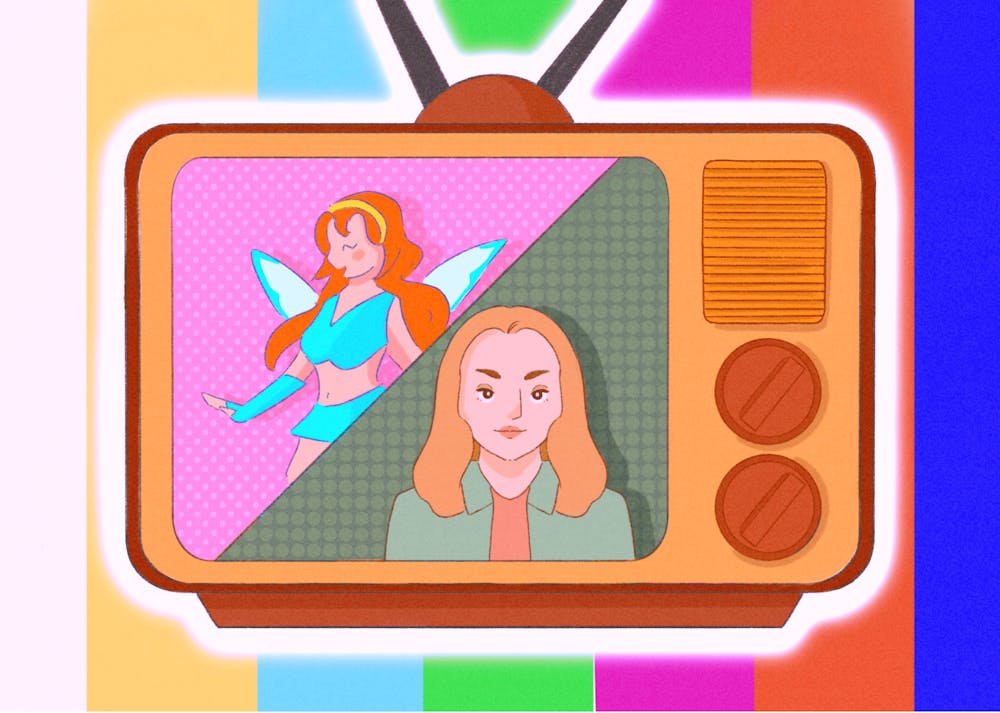Everybody loves a good comeback.
Reboots, the name for comebacks of TV and film, have been a cornerstone of entertainment over the past few decades.
From a consumer perspective, the reason for the phenomenon is quite simple: People love nostalgia. Consuming media that brings up past feelings allows for comfort in its familiarity, said Jason Davids Scott, interim director of The Sidney Poitier New American Film School.
READ MORE: Insight: Re-watching old cartoons helps ground me
"The history of show business is a history of recreating stories in new forms with new bodies," Scott said. "As a species, most of us come from cultures of oral tradition with repetition. We crave the familiar in a way that seems immediate and new."
The reboot genre doesn't stop at repeated characters and plots. The family sitcom formula proves that with laugh tracks, family values and familiar archetypes, countless shows can branch off from a single idea.
The explicit recreation of a show or movie cashes in on dedicated fanbases, because "the quality of the show doesn't matter as long as it evokes a sense of childhood," Scott said.
"In older television, the formula of the show was what you were rebooting," Scott said. "Think the family sitcoms of the '80s – you recycle the story arcs instead of the entire story.
"As television became more complex, you began to see a wave of the modern sitcom that replaced the typical laugh track family shows. Now, to revive a show, we have to go back to the brand, rather than the formula, to evoke familiarity."
Scott said some producers have latched onto show names, hoping people will remember it and bring with them new viewers.
"Full House," lives as a classic show for many, emanating family values and childhood comfort. With a dedicated fanbase stretched across generations, its reboot, "Fuller House," reached multiple demographics as people who remembered the show shared the experience with their children.
Despite anticipation surrounding a reboot with so much potential to revive a well-loved story, "Fuller House" was met with remarks of how hollow and predictable it was. The reboot was still heavily publicized, proving how much power there is in a name.
Other reboots, including many of Disney's live-action remakes, have also been criticized for mimicking source material with no new additions.
However, some reboots draw criticism for the exact opposite reason, as in the case of the upcoming "Winx Club" and "Gossip Girl" reboots. Concerns also surface when reboots stray too far from the original, losing sight of what made it so special in the first place.
Despite criticism, the power of reboot names allows for publicity. And as with any publicity, the conversations cause traffic and intrigue, providing revenue for studios.
This is precisely why the entertainment industry refuses to stop making reboots, regardless of consumer responses.
Love it or hate it, a grab for nostalgia will always win, said Greg Bernstein, associate professor in the film school and an expert in film studies and screenwriting.
"It makes more financial sense for studios not to fund some original, smaller movie, but instead to fund a budget for the next movie remake or sequel, because that's ultimately what the market responds to," Bernstein said. "Looking at factors of demand, the taste of consumers makes a large impact. If they want familiarity, firms will respond to make the most money."
If a third series remake of Spiderman will bring in more than a new stand-alone movie about a newfangled superhero, so be it.
People will watch it, react to it and the cycle will continue.
"Hollywood is only interested in one thing, and that's money," Bernstein said. "They don't do something out of a wistful sense of nostalgia. They're like any other business – in it for the revenue."
Reach the reporter at jecote@asu.edu and follow @jillianecote on Twitter.
Like The State Press on Facebook and follow @statepress on Twitter.
Continue supporting student journalism and donate to The State Press today.




